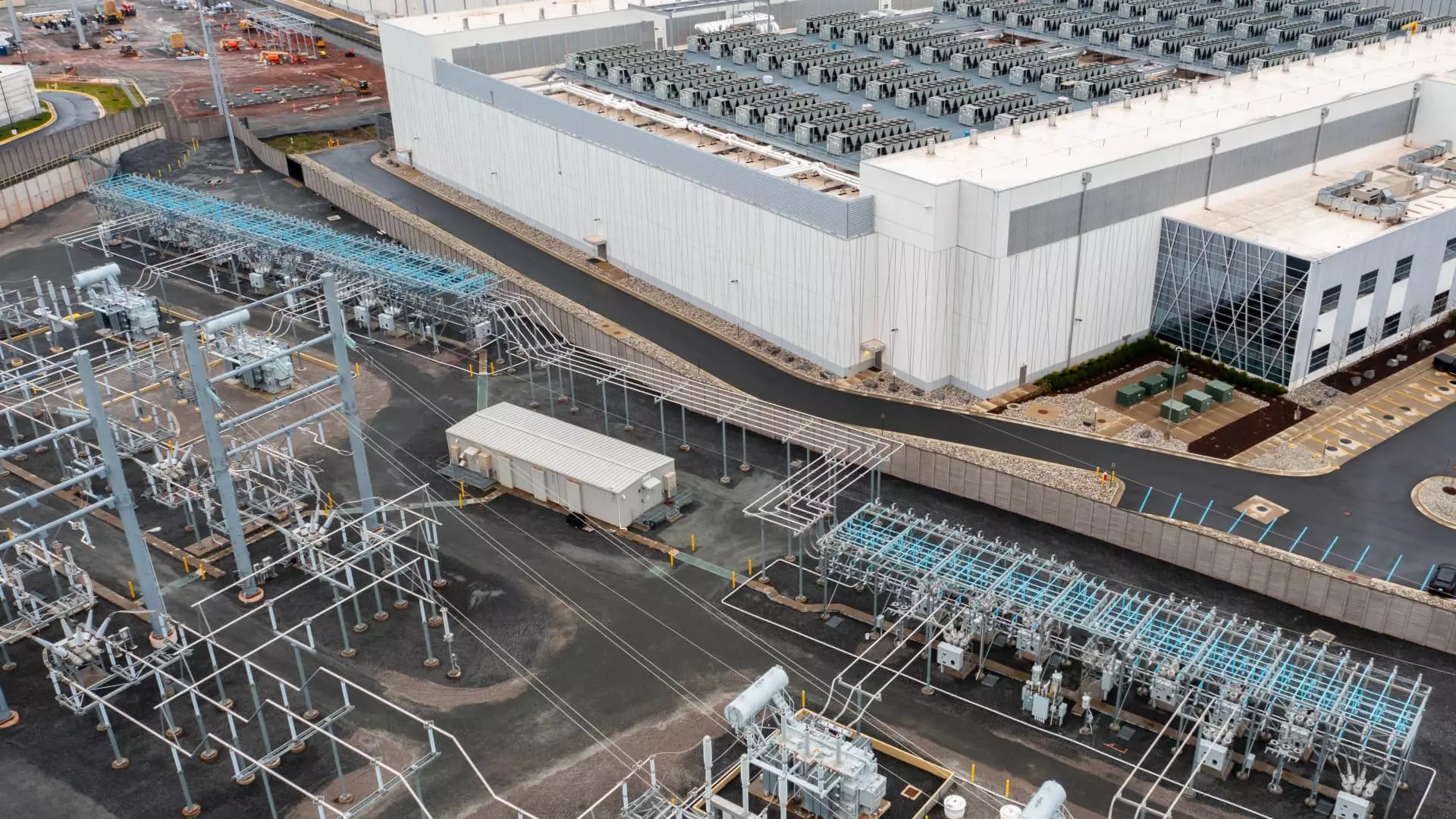The integration of artificial intelligence (AI) with sustainable energy sources has long been viewed as an innovative frontier, particularly in the tech sector’s quest for reliable power. However, a recent decision by the Federal Energy Regulatory Commission (FERC) has thrown a significant wrench into the plans of technology giants like Amazon. The regulatory body denied Talen Energy’s request to increase the power output from the Susquehanna nuclear plant in Pennsylvania, which was slated to provide enhanced energy capabilities for an Amazon data center. This denied request would have facilitated a first-of-its-kind partnership intended to bolster AI capabilities through a direct nuclear energy tie-in.
This denial not only cast uncertainty over Amazon’s energy procurement strategies but also sent Talen Energy’s stock tumbling by over 9% in premarket trading. The energy landscape is proving to be as unpredictable as the advancements in AI it aims to fuel, with other affiliated companies like Constellation Energy and Vistra facing declines as the ramifications of this order echoed through the market. Wall Street had anticipated that these companies would follow suit in forming power agreements similar to the one proposed between Talen and Amazon, and the sudden regulatory roadblock has rattled investor confidence.
FERC Commissioner Mark Christie remarked that the proposed arrangement bore significant importance for grid reliability and consumer costs. The arrangement in question, categorized as co-location, aimed to increase the power allocated to the Amazon campus from 300 megawatts to an ambitious 480 megawatts. The expectation was that such an unprecedented move could usher in transformative changes, enhancing not only the operational effectiveness of data centers but also the overall reliability of the electric grid.
Talen Energy’s response to FERC’s decision indicated a deep concern for economic development in key states, including Pennsylvania, Ohio, and New Jersey. The company argues that this rejection could deter future investments and innovations in these regions, impacting jobs and local economies that are increasingly reliant on both data centers and advanced technology infrastructures.
While Talen can still deliver 300 megawatts to Amazon, the company is now forced to reassess its strategy and weigh its commercial options for future developments. The setback highlights a systemic challenge faced by energy providers as they attempt to align their resources with the demands of the tech industry.
As more firms pivot toward AI and cloud computing, their demand for energy is exponentially increasing. Data centers have become electricity-hungry entities, pressuring utility companies to explore innovative energy solutions. The intersection of technology and energy signifies a pivotal shift, where traditional power generation methods must evolve to meet the unique demands posed by the tech landscape.
Nuclear energy is emerging as an attractive solution due to its reliability and negligible carbon emissions. Companies like Constellation and Vistra are actively seeking to establish similar pacts in the hopes of tapping into this lucrative market. With data consumption predicted to rise dramatically, the role of reliable energy sources will be central to sustaining this growth.
The stock market response to FERC’s decision underscores the heavy reliance on energy investments tied to technological advancements. With Vistra and Constellation standing out as top performers in the S&P 500 this year, investor sentiment reflects optimism about the potential returns from catering to the increasing energy needs of the tech sector.
As Vistra’s stock price has more than tripled and Constellation has seen more than a 100% increase, the pressure is mounting for these companies to secure energy partnerships that align with the burgeoning demand from data-driven industries. Meanwhile, the energy sector already finds itself in a precarious negotiation of balancing regulatory hurdles with the urgent need for sustainable development.
The recent FERC ruling presents a cautionary tale for the tech industry and its energy counterpart. While innovative synergies between AI and nuclear power hold great promise, the regulatory landscape can pose unpredictable challenges that may hinder progress. As the world becomes increasingly reliant on data and digital infrastructures, the need for effective collaboration between tech giants, energy producers, and regulators will become paramount. A path forward will necessitate dialogue and flexibility, fostering a climate conducive to innovative energy solutions capable of supporting an AI-driven future.

